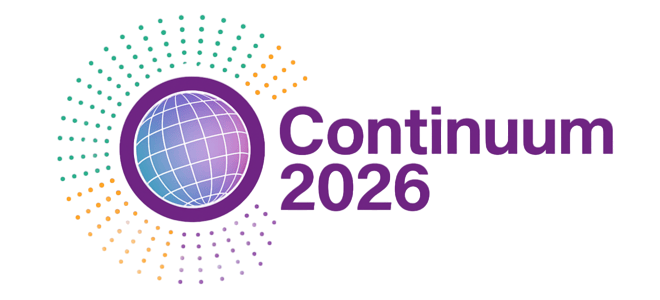Giving Voice to the Patient
Dr. Heidi Crane’s PROs-Themed Lecture at Continuum 2025
Blogpost from Dr. José M. Zuniga (11 June 2025)
In a technically rich memorial lecture delivered at Continuum 2025, Dr. Heidi Crane (University of Washington, Seattle) honored the legacy of Drs. Andrew Kaplan and Gary Reiter by advancing a vision of HIV care that begins with listening – systematically, equitably, and compassionately – to the patient voice. Her lecture, “Giving Voice: Using Patient-Reported Outcomes to Enhance HIV Care,” illuminated how the use of patient-reported outcomes (PROs) can transform clinical encounters, improve health outcomes, and drive relevant research in ways that traditional data sources like electronic health records (EHRs) simply cannot.
Dr. Crane emphasized that PROs capture critical dimensions of health, such as mental health symptoms, substance use, stigma, adherence, and social determinants. These dimensions are often underreported or missed entirely in provider-patient conversations. In capturing these dimensions, PROs help to bridge the gap between what patients experience and what providers hear. PROs are not just about collecting data, she explained, they are about honoring what matters most to people living with HIV.
Key findings from the Centers for AIDS Research (CFAR) Network of Integrated Clinical Systems (CNICS), which has collected over 100,000 PROs from more than 20,000 people living with HIV across the United States, show that PROs double the detection of substance use compared to EHRs and significantly improve the identification of depression, non-adherence, and at-risk alcohol use. When integrated into provider workflows, PROs prompt life-saving conversations: about suicidal ideation, hidden substance use, and other sensitive issues patients may be reluctant to disclose verbally.
Patients themselves report greater comfort, honesty, and preparedness when using PROs. Many shared that it felt easier to admit to challenges like sexual health concerns or mental health struggles when answering questions on a tablet. “It felt less like being on trial,” said one, while another described how the questionnaire sparked reflection before the appointment, helping them articulate health concerns they may not have otherwise shared.
Dr. Crane also detailed the practical considerations of implementing PROs, including addressing privacy, device security, patient burden, and stakeholder buy-in. Despite these challenges, the benefits are clear. Providers interviewed across CNICS sites praised PROs for facilitating difficult discussions and surfacing issues they may have missed otherwise.
Importantly, PROs also generate data that inform high-impact research. Whether identifying frailty predictors, measuring cognitive decline, or associating substance use with mortality risk, PROs offer precision and face validity lacking in EHRs. They empower clinicians and researchers alike to ask better questions and generate findings that are truly patient-centered.
Dr. Crane closed by reminding the audience that PROs are not a panacea, but they are a powerful tool for deepening the human connection at the heart of HIV care. Her bottom-line message: We do not collect PROs to replace conversations. We collect them to start better ones.
Access Dr. Crane’s presentation: https://www.iapac.org/wp-content/uploads/2025/06/Continuum-2025-Heidi-Crane.pdf
Dr. José M. Zuniga is President/CEO of IAPAC and served as a co-chair of the Adherence (now Continuum) conference from 2010-2015.





